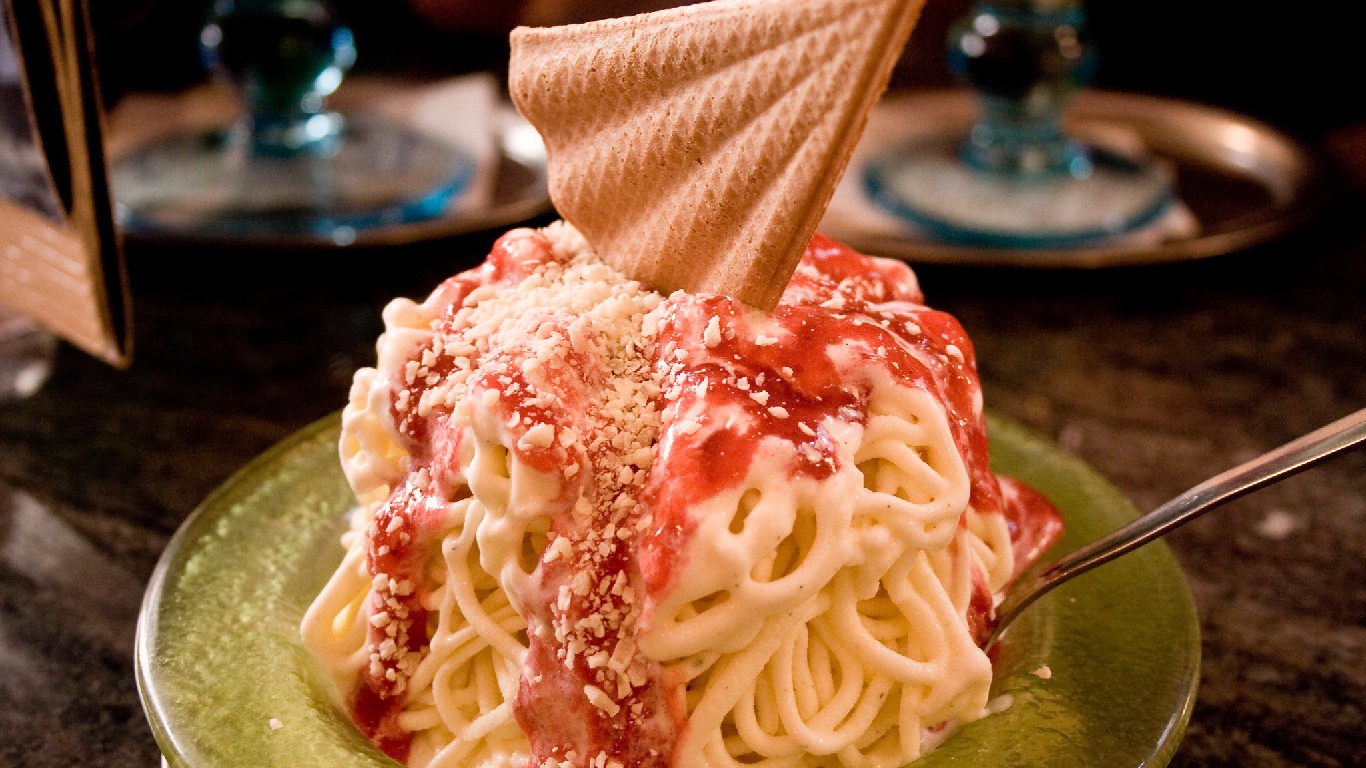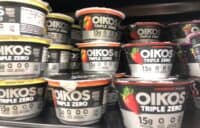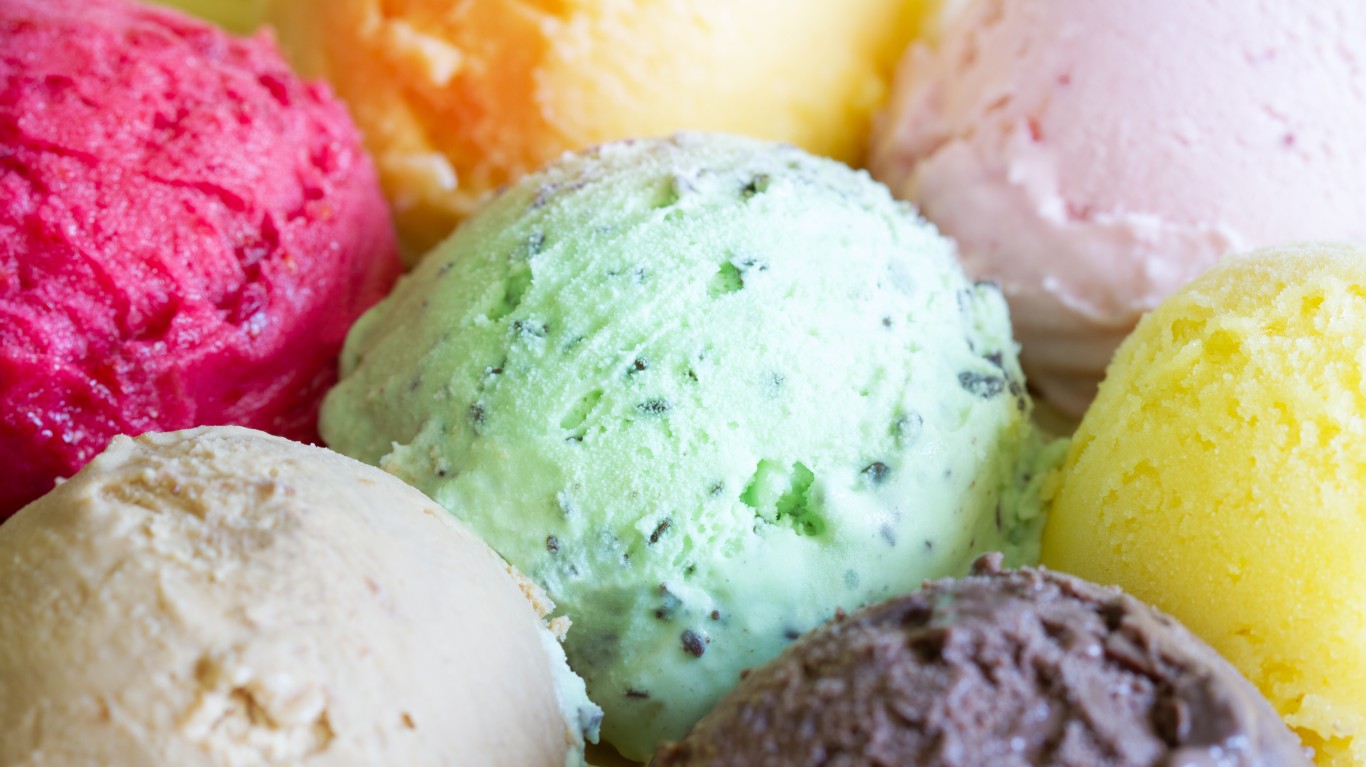
Flavor, texture, and creaminess are the trifecta that inform the essence of delectable ice cream. When these metrics are not adequately met, the result is a disappointing confection that fails to deliver that tasty triumvirate that defines a truly exceptional frozen treat. Forewarned being forearmed as it is, continue reading to get the scoop on the 11 worst ice cream brands.
Ice Cream, Briefly
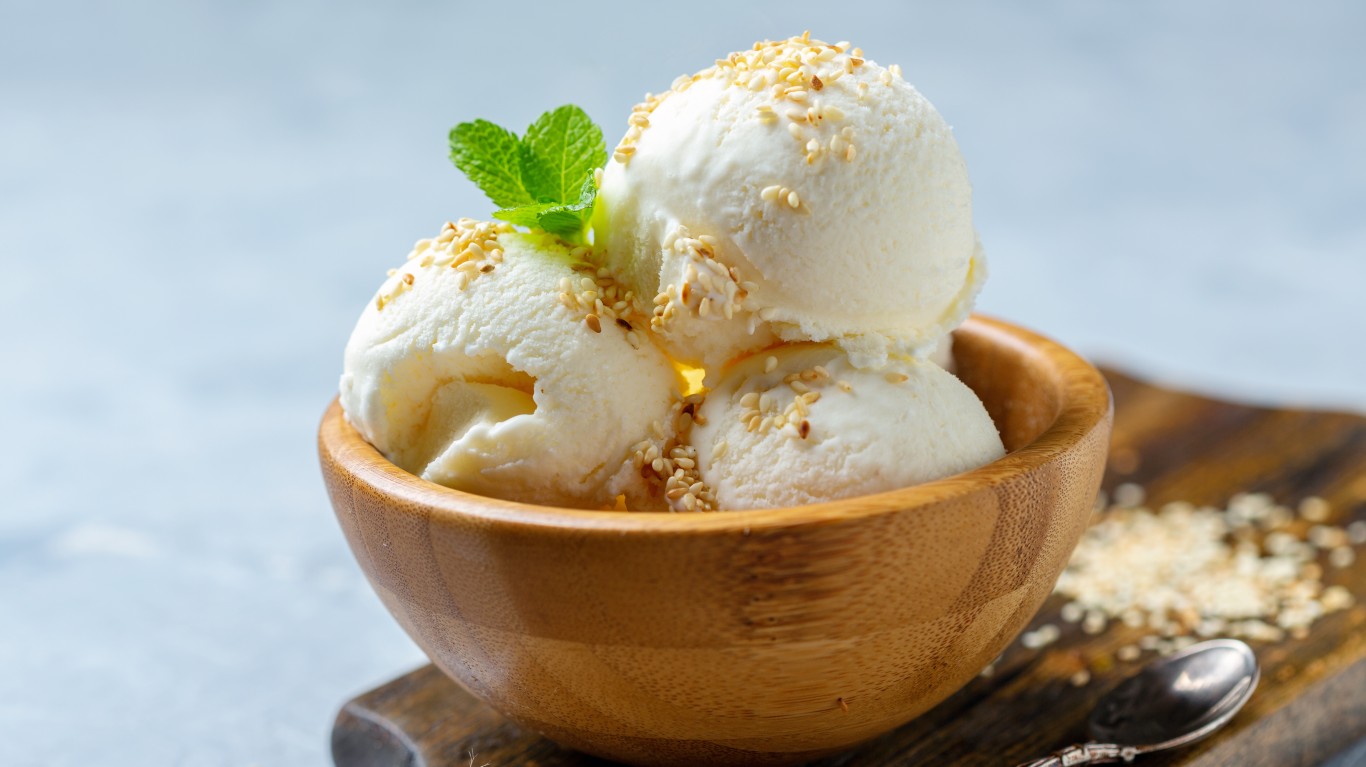
For thousands of years, sweet frozen concoctions have been enjoyed around the globe. The 20th century embraced the mass production and distribution of ice cream. What began as a mom-and-pop confection has become a multi-billion dollar industry in the United States. Burgeoning consumer demands and shareholder expectations require ice cream manufacturers to prioritize cost-effective ingredients and production methods over product quality.
When buying ice cream look for brands with the fewest, most natural ingredients. Avoid artificial flavors, colors, and sweeteners. High fructose corn syrup, a principal ingredient in many name-brand ice creams, has been linked to health concerns including obesity, liver disease, and diabetes. Carrageenan, a natural byproduct of red seaweed that is used as an emulsifier, causes bloating, irritable bowel syndrome, and inflammation in sensitive individuals. While these ingredients don’t necessarily make for bad ice cream, consumers should, nonetheless, be aware of possible reactions and side effects that they can cause.
Processing also plays a role in the quality of the final ice cream product. Overrun, the amount of air incorporated during freezing, must be balanced. Excessive overrun diminishes the density and creaminess of ice cream. Storage conditions are critical as fluctuations in temperature or prolonged exposure to air can result in issues including freezer burn and poor flavor. So whether it’s the texture, flavor, lack of creaminess, or a combination thereof, which ice cream brands are considered the worst? Please note that some of the products on our list are not recognized as ice cream based on the USDA definition of ice cream.
11. Kemps

- Parent/owner: Dairy Farmers of America Inc. (DFA)
- Established: 1914
- Projected cost: $7.89/gallon
William Kemps’ ice cream has been around for over a century now. In the ensuing years, the brand has gone through tremendous changes. From a simpler time with simple ingredients, the brand has morphed into an all-to-familiar modern brand with unpronounceable and artificial ingredients. Kemps was among 120-ish defendants in a class-action lawsuit for false or misleading advertising regarding the labeling of vanilla products. Long story short, the courts have sided with the defendants in this one – a product can be advertised and labeled as natural vanilla even when the vanilla flavor is not derived exclusively from the vanilla bean. A case of caveat emptor. If it’s important to you that the natural vanilla flavor of your ice cream is sourced from vanilla beans solely, then you’d better bring your reading glasses to the grocery, because you’re going to be reading a lot of fine print.
10. Blue Bunny

- Parent/owner: Wells Enterprises/Ferrero Group
- Established: 1935
- Projected cost: $16.00/gallon
Fred Wells was delivering milk for a dairy in Sioux City, Iowa when in 1925, he and his sons, Harold, Mike, Roy, and Fay began manufacturing ice cream in 1925. They sold the business along with the family name a few years later. Left unable to use the family name in a new ice cream enterprise, the Wells brothers held a naming contest with a $25.00 prize. The winning entry was Blue Bunny, which hit the streets in 1935. What was once a trusted brand had gone the familiar route of lower-quality ingredients for greater profits. And though the courts have ruled that vanilla doesn’t have to be sourced strictly from vanilla beans to be called vanilla? Blue Bunny doesn’t even qualify. Their vanilla-flavored products rely on artificial vanilla, which is decidedly apparent in the flavor and aftertaste.
If they’re using artificial vanilla, what other questionable ingredients might they employ? Fructose, mono and diglycerides, carob bean gum, cellulose gum, cellulose gel, carrageenan, tara gum, xanthan gum, guar gum, maltodextrin, and salt are all listed on Blue Bunny Homemade Vanilla Flavored Ice Cream. While not all of these ingredients have health concerns, all of them are completely unnecessary.
9. Good Humor
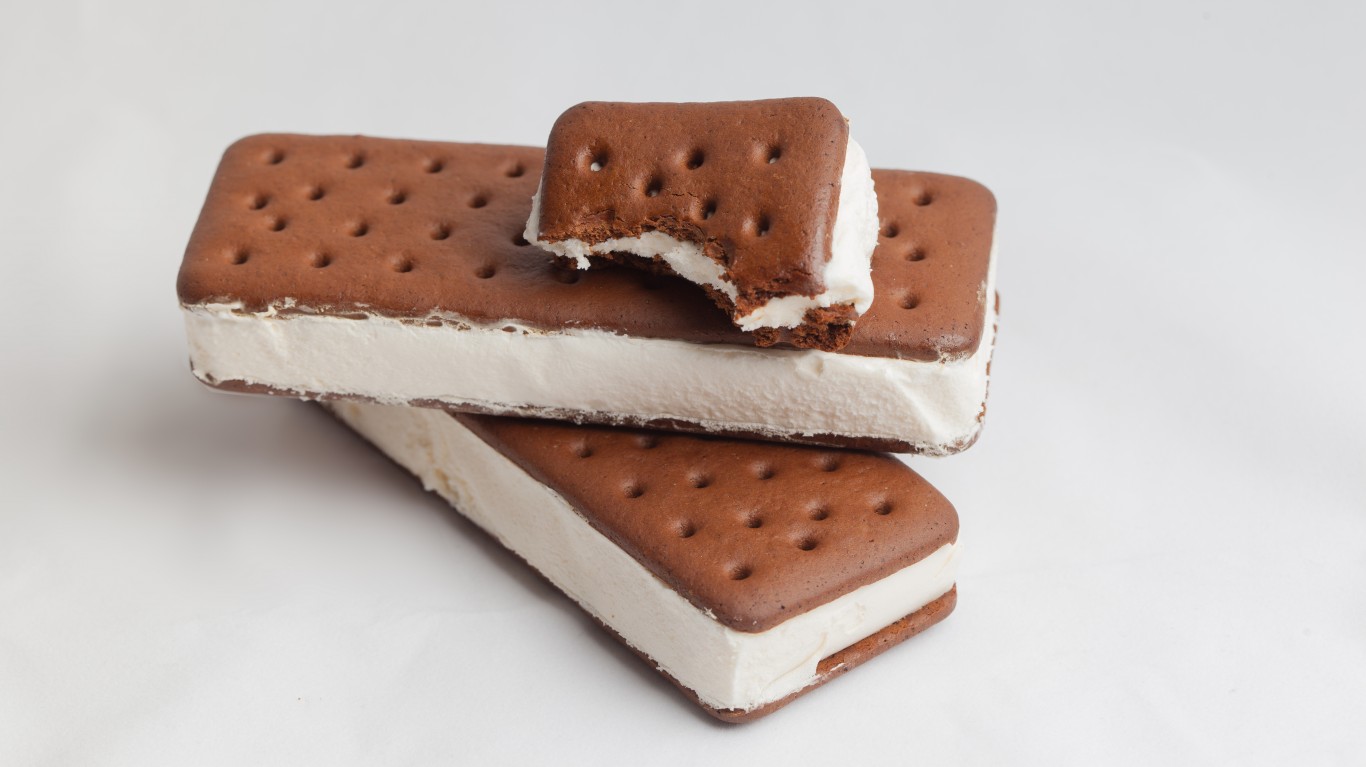
- Parent/owner: Gold Bond-Good Humor Ice Cream Company/Unilever
- Established: 1920
- Projected cost: $39.00/gallon
The original Good Humor bar and the trucks from which they were sold were a well-loved institution of mid-20th century America. fast-forward a century, and the beloved brand has lost some of its polish. The ingredients list for their Vanilla Viennetta includes nonfat milk, coconut oil, glucose-fructose syrup (wheat, corn), sugar, water, corn syrup, Whey Protein Concentrate, Mono and Diglycerides, Locust Bean Gum, Guar Gum, Ammonium Phosphatides, Carrageenan, Natural Flavor. Reviews of this Good Humor confection contain adjectives like mediocre and unremarkable. Sometimes less is more.
8. Friendly’s
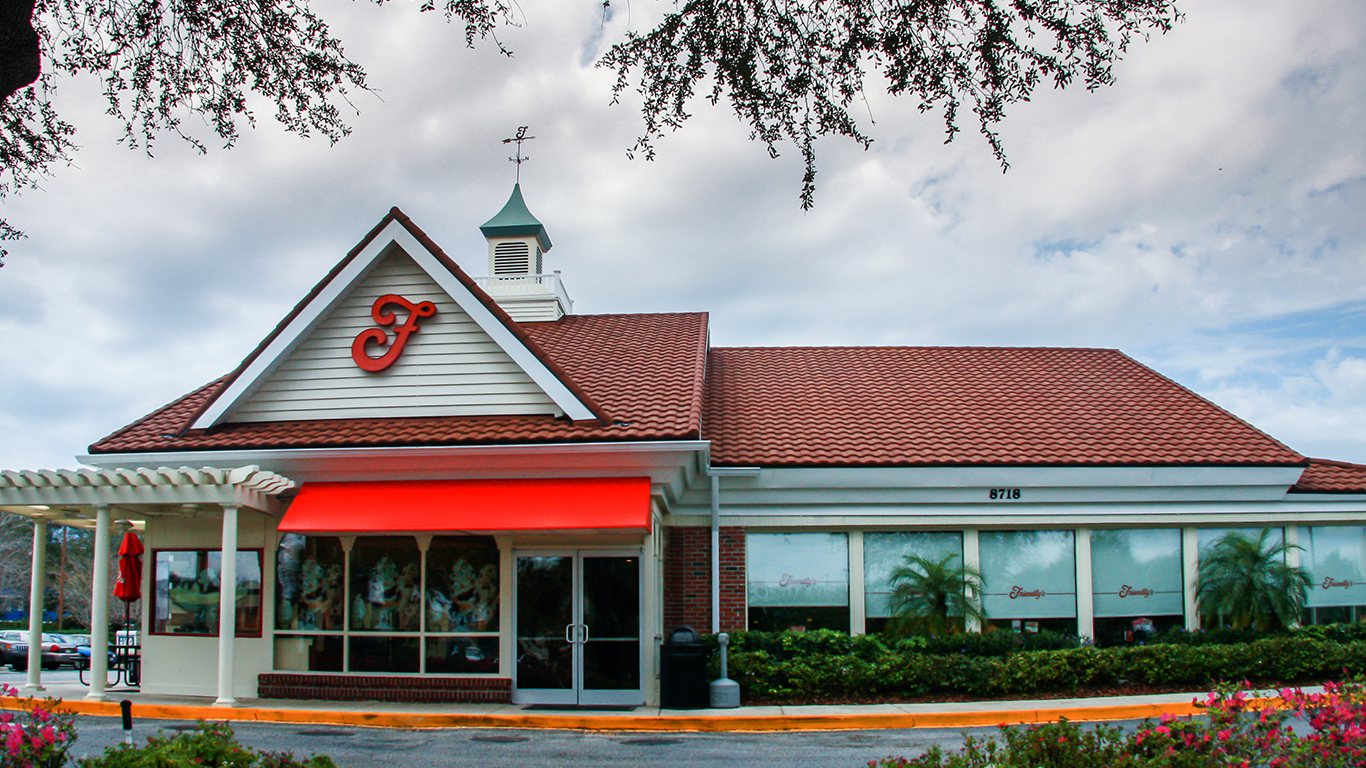
- Parent/owner: Dairy Farmers of America Inc. (DFA)
- Established: 1935
- Projected cost: $15.00/gallon
Friendly’s ice cream is sold principally in its restaurants but in 1989 the brand was introduced at the local grocery. Sadly, Friendly’s is no longer synonymous with quality. Beyond lower-quality ingredients, the company behind Friendly’s has filed for bankruptcy more than once. Since 2016, the ice cream manufacturing arm has been separately owned and operated.
7. Blue Ribbon Classics Classic Vanilla
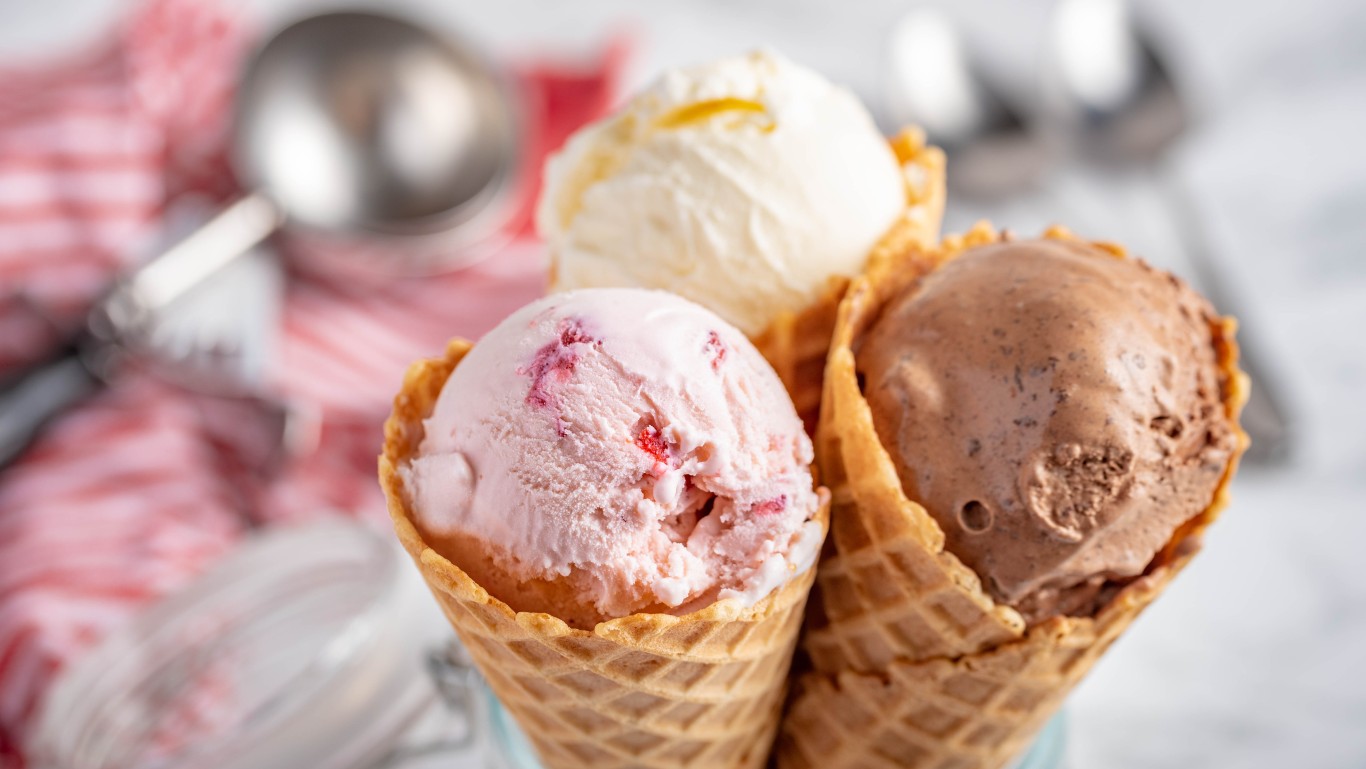
- Parent/owner: Wells Enterprises/Ferrero Group
- Established:1925
- Projected cost: $7.99/gallon
Technically, Blue Ribbon Classics Classic Vanilla isn’t ice cream – it’s a frozen dessert! That right there ought to tell you everything you need to know. It is also artificially flavored and contains the aforementioned carrageenan.
6. Nick’s Swedish Style Light
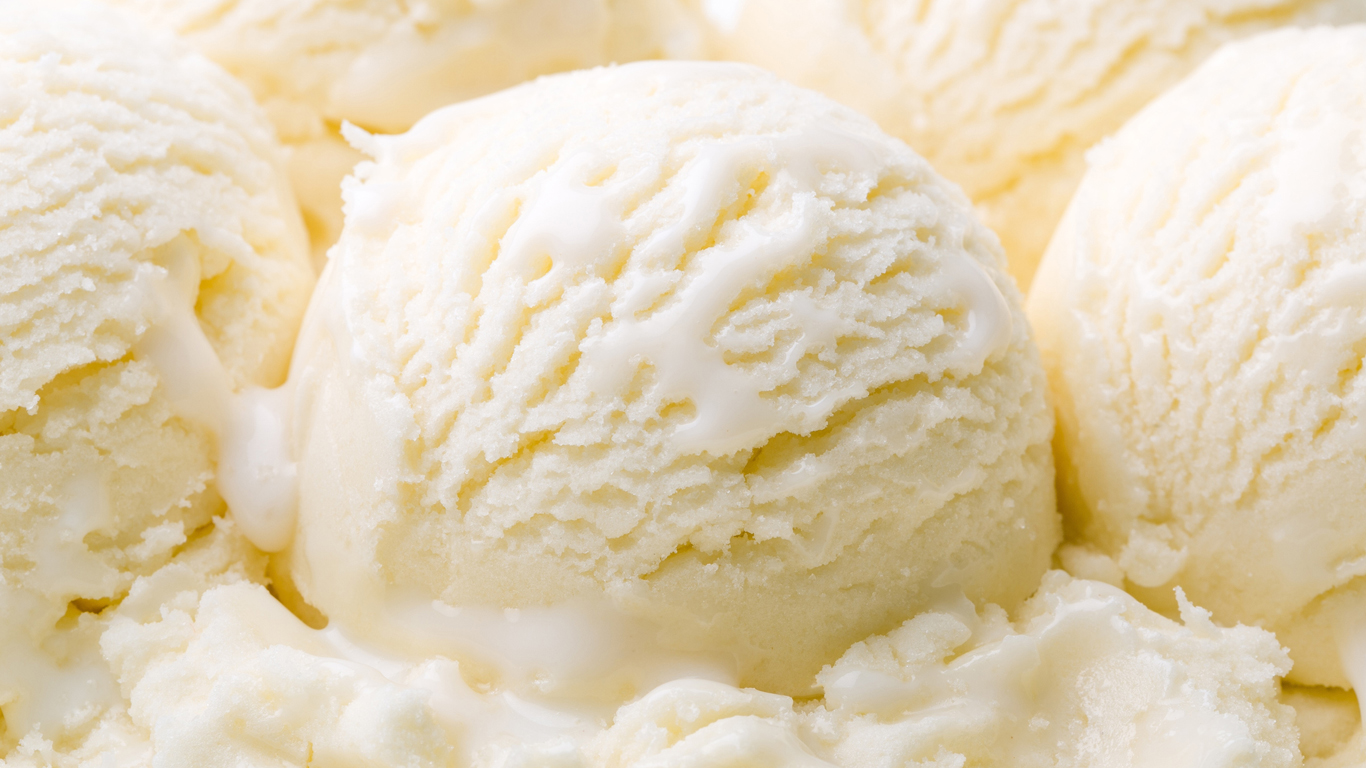
- Parent/owner: Niclas Luthman
- Established: 2017
- Projected cost: $22.00/gallon
Nick’s, a keto-friendly ice cream brand claims to be a healthful alternative to traditional high-fat, high-sugar, high-calorie ice cream. And when only fat and calories are considered, it is. However, like Nick’s protein bars, Nick’s Swedish Style Light contains Erythritol. Erythritol is a sugar alcohol that is used as a low-calorie sweetener. It causes digestive issues in some individuals, including bloating, gas, and diarrhea. This is particularly true when it is consumed in large amounts. The reduction of fat and calories in these products results in consumers eating larger than intended quantities to feel sated. Erythritol also has a distinctly different taste and texture from sugar.
5. Rebel
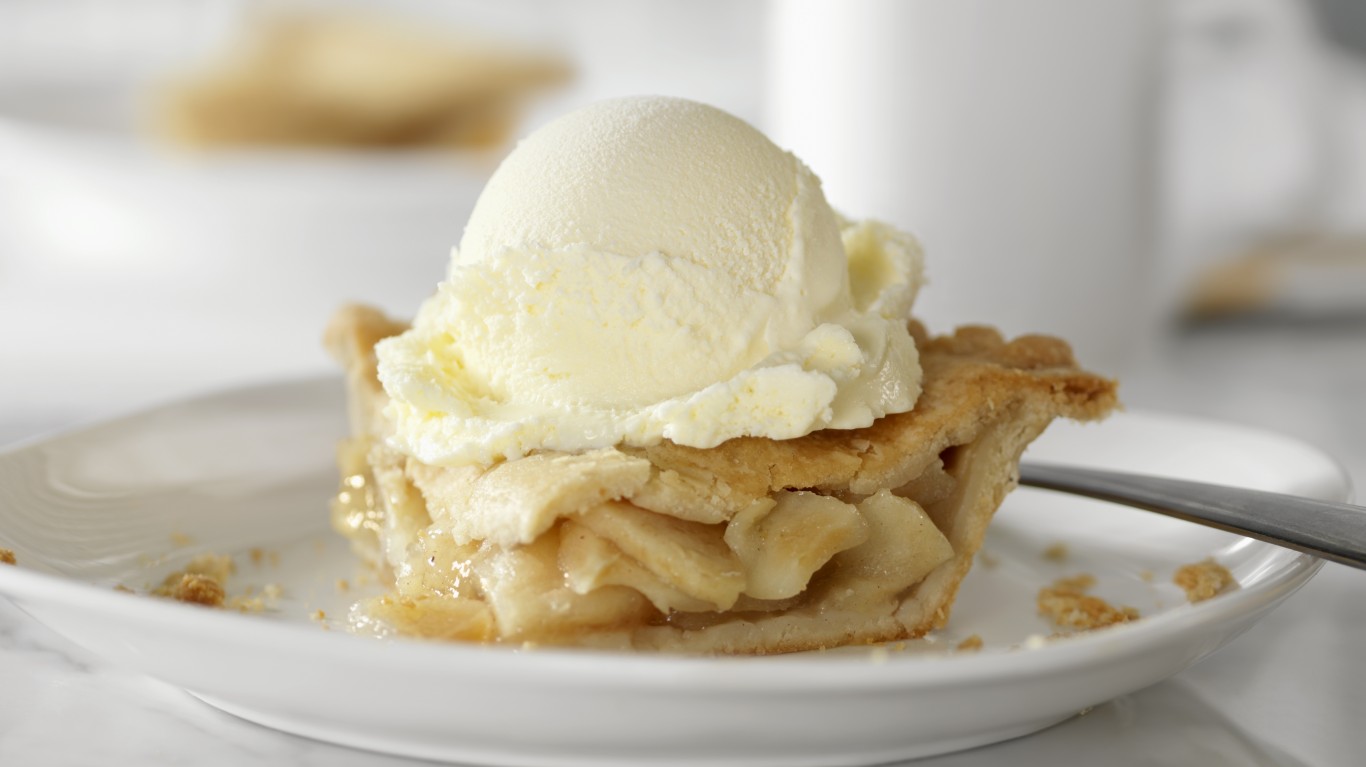
- Parent/owner: Austin and Courtney Archibald
- Established: 2018
- Projected cost: $24.00/gallon
This keto-friendly brand jumped onto the ice cream scene via Kickstarter in 2018. Not only does Rebel contain the aforementioned low-calorie sweetener Erythritol, it also contains unhealthful amounts of saturated fats. According to a class-action lawsuit filed in July 2022, a serving of Rebel ice cream has more saturated fat than a typical fast-food cheeseburger. This runs counter to the company’s claims and marketing campaign touting Rebel as a healthful alternative to traditional ice cream varieties. The litigation is ongoing.
4. Halo Top

- Parent/owner: Wells Enterprises/Ferrero Group
- Established: 2011
- Projected cost: $20.00/gallon
Halo Top, founded by entrepreneur Justin Woolverton was sold to the Ferrero Group in 2019. This brand’s image as a healthful alternative to traditional ice isn’t entirely without merit. However, the ubiquitous Erythritol is present and used in conjunction with stevia, another plant-based artificial sweetener. As with other low-calorie ice cream alternatives, one of the primary issues with Halo Top is the propensity to over-indulge. Lower fat + lower calorie = less filling. It therefore requires more than one serving to feel the level of satisfaction one has after one serving of ice cream. Halo Top is also the defendant in a consumer fraud suit for allegedly selling short pints. As of December 2023, the case has been remanded for dismissal without prejudice.
3. Baskin Robbins
- Parent/owner: Inspire Brands/Roark Capital Group
- Established: 1945
- Projected cost: $55.00/gallon
Founded in 1945 by Burt Baskin and Irv Robbins, Baskin-Robbins is a fixture in the American ice cream industry. In 2020 the Baskin-Robbins was acquired by Inspire Brands. Like so many other brands, Baskin-Robbins uses questionable ingredients like stabilizer/ emulsifier blends containing mono and diglycerides, cellulose gum, guar gum, and carrageenan. Even if you’re not sensitive to their nefarious effects, these ingredients detract from the flavorful expectations the Baskin-Robbins name implies. From the grainy texture to the hint of freezer burn, consumers are not happy with the downward spiral of this America classic.
2. Breyers Frozen Dairy Desserts
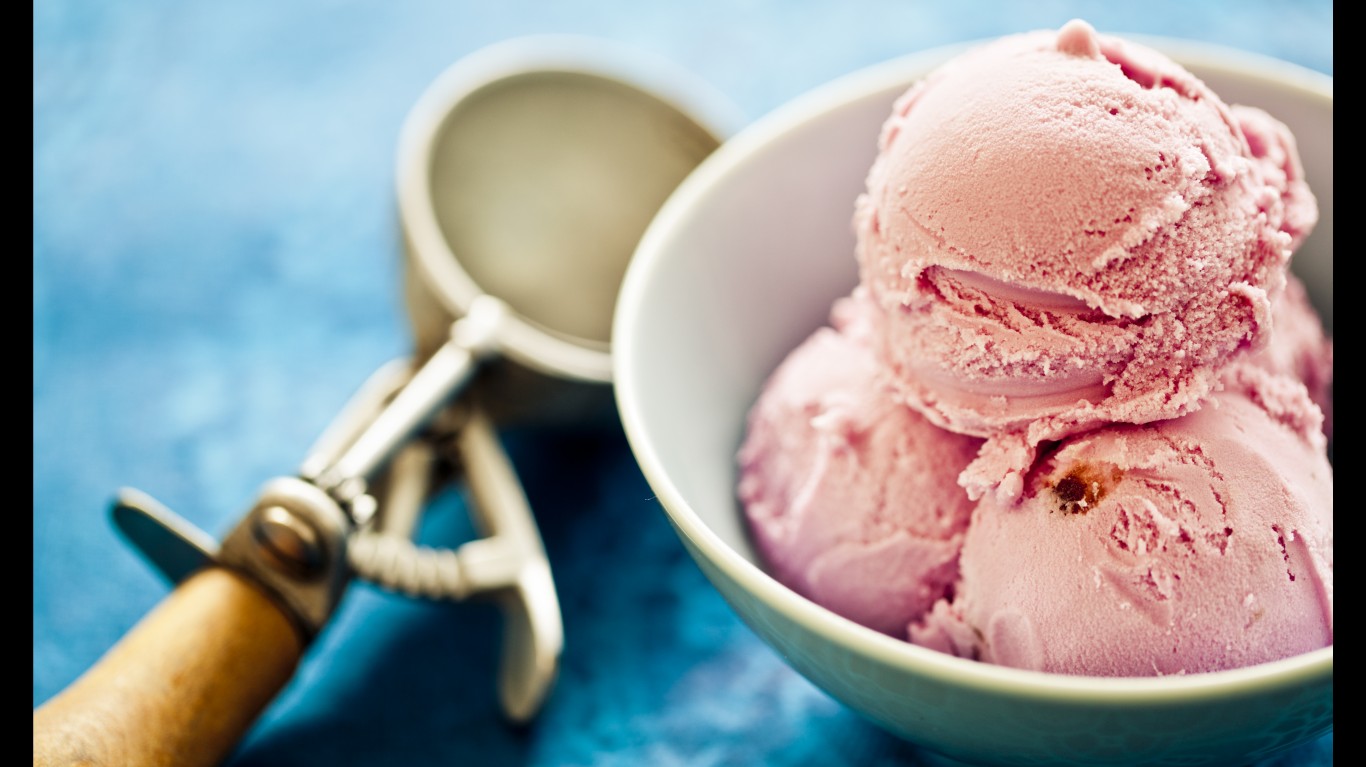
- Parent/owner: Gold Bond-Good Humor Ice Cream Company/Unilever
- Established:1866
- Projected cost: $15.50/gallon
Founded by William J. Breyer on the heels of the American Civil War. William’s son, Henry, sold the company in 1926 to National Dairy Products Corporation/Sealest, which would become Kraft Foods. In 1993, Kraft sold all of its ice cream products to Unilever. Breyers does produce some honest-to-goodness high-quality ice cream, but they also produce their fair share of duds. The brand that once touted its list of easy-to-read ingredients now manufactures products that can’t be labeled ice cream as they are bereft of the creamy fat content that makes ice cream ice cream. Breyer’s is also no stranger to class action lawsuits, most involving claims of false advertising.
1. Turkey Hill
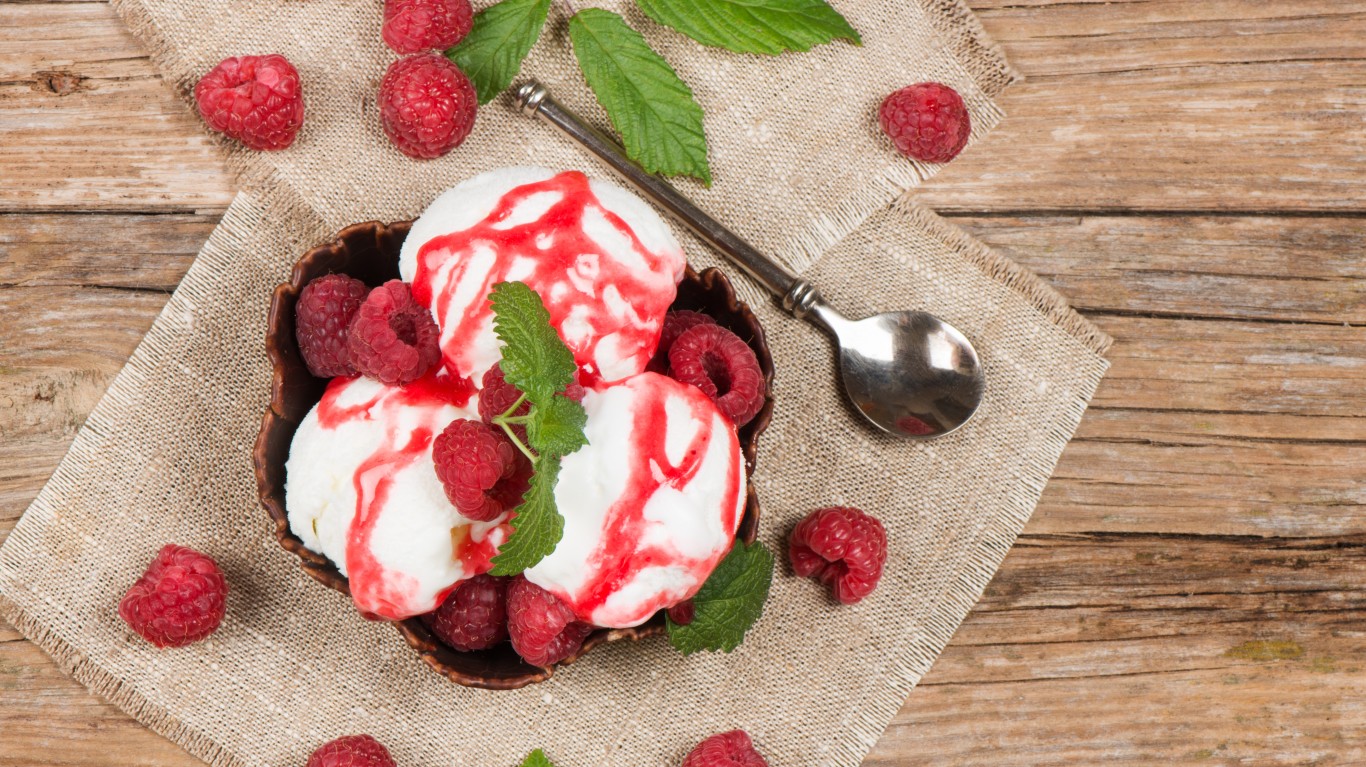
- Parent/owner: Peak Rock Capital
- Established: 1931
- Projected cost: $22.00/gallon
Located in Conestoga, Pennsylvania, the name Turkey Hill originated with the area’s native Conestoga Indians. Turkey Hill Farm was purchased from the scions of Colonial writer William Penn by the Frey family, who in 1931 began to deliver milk. In 1956 the Frey family added ice cream to their line. Even after the sale of the business in 1985, to Dillon’s, a subsidiary of Kroger, the Frey family remained at the helm until 2013. Peak Rock Capital acquired the brand in 2019.
As Kroger’s flagship brand, Turkey Hill was a mainstay in the Kroger freezer from 1985-2023. Though there was some mild protest when the item disappeared, thanks to its declining fanbase, its removal went largely unnoticed. Like Breyer’s, Turkey Hill manufactures some decent ice cream. Also like Breyer’s, Turkey Hill produces its share of lackluster, lower-quality frozen treats. They use the same principal offenders- cellulose gum, cellulose gel, and carrageenan- as other brands on the list. The big takeaway: Read the label.
It’s Your Money, Your Future—Own It (sponsor)
Are you ahead, or behind on retirement? For families with more than $500,000 saved for retirement, finding a financial advisor who puts your interest first can be the difference, and today it’s easier than ever. SmartAsset’s free tool matches you with up to three fiduciary financial advisors who serve your area in minutes. Each advisor has been carefully vetted and must act in your best interests. Start your search now.
If you’ve saved and built a substantial nest egg for you and your family, don’t delay; get started right here and help your retirement dreams become a retirement reality.
Thank you for reading! Have some feedback for us?
Contact the 24/7 Wall St. editorial team.
